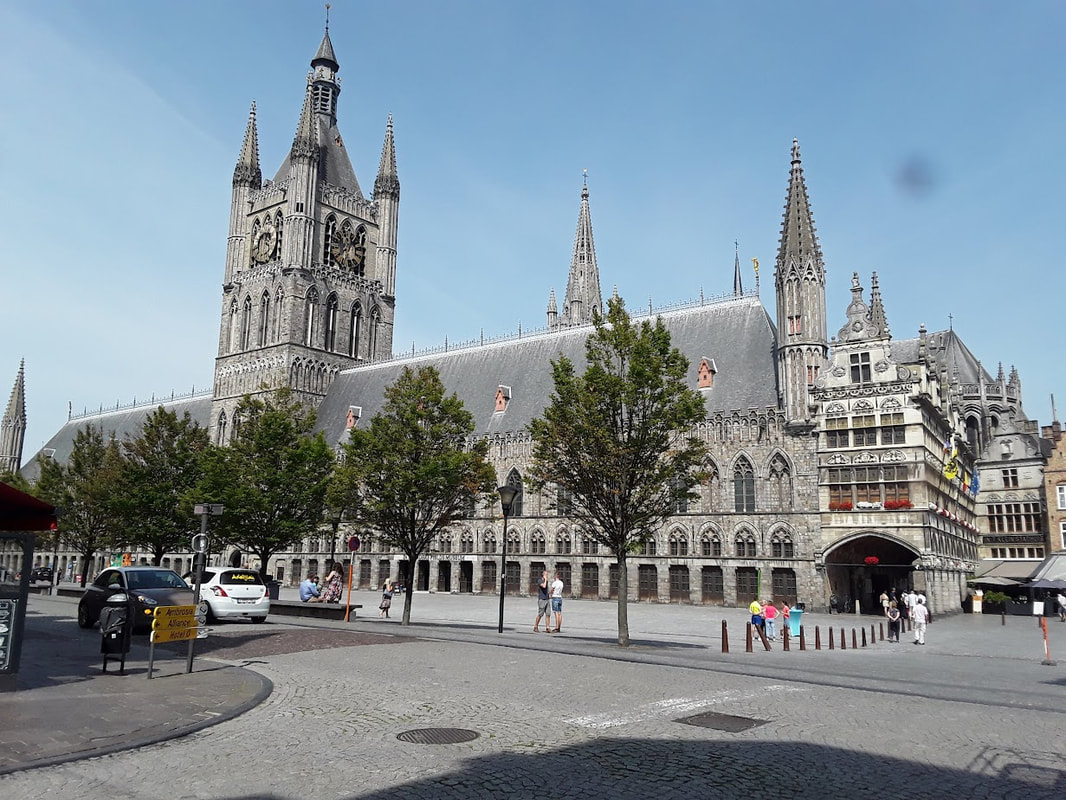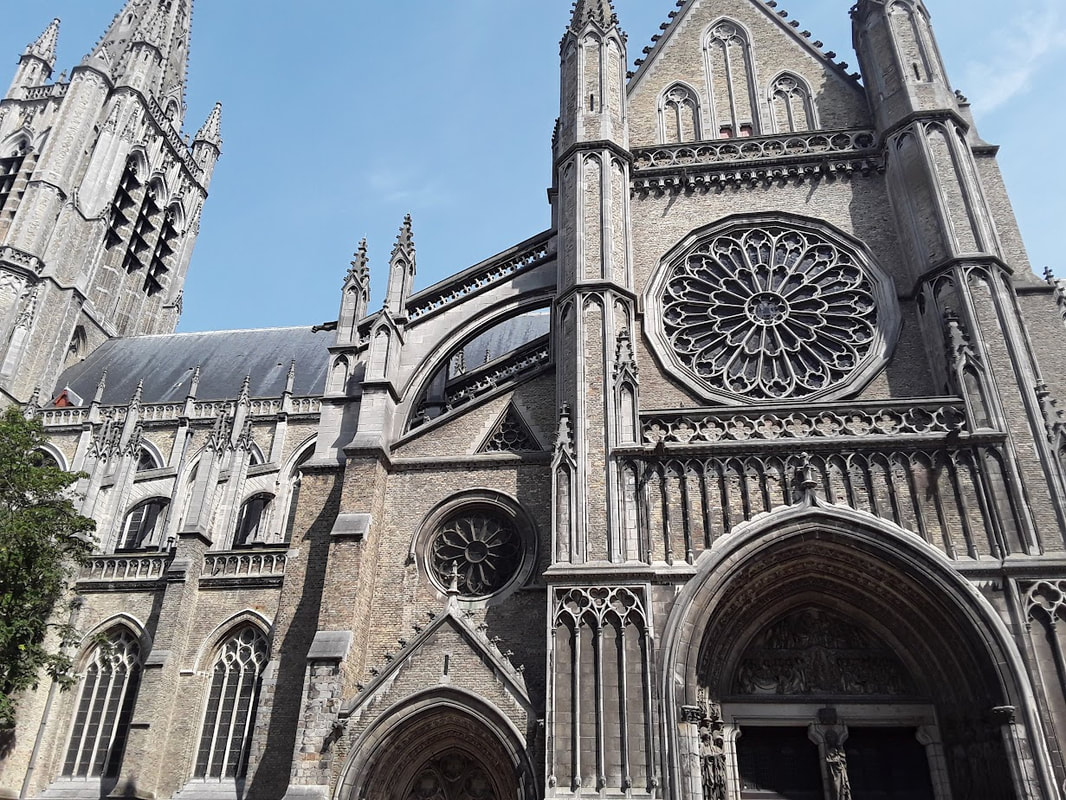Ypres is the third largest city in the Flanders, right behind Ghent and Bruges. Its official name is its Flemish one, Ieper, but it is most commonly called by its French name, Ypres. It most likely got its name from its proximity to the Yperlee, or Leperlee, River. During World War I, British soldiers often renamed the places whose names felt strange to their tongues. The town of Bailleul became Baloo, Étaples became Eat Apples, Foncquevillers.was called Funky Villages, and Ypres became Wipers..
Ypres is an ancient town. The Romans raided it in the first century BC, mentioning it in their records by location. The first written record of the name is from 1066.
During the Middle Ages, Ypres became a major cloth-weaving city. It was such an important trading partner, its linen so valuable to the English that it is mentioned in the Canterbury Tales. England's Edward III offered economic incentives and protection to Flemish weavers, who migrated to the island nation in large numbers.Ypres cloth, both linen and woolen, was available as far away as the city of Novgorod, in Kievan Rus. Its population grew, possibly to as large as 80,000.
 A section of the old town walls
A section of the old town walls By the turn of the 20th century, the town looked old and worn. An extensive rebuilding program restored the Cloth Hall and Cathedral to their former glories. The town's restored beauty was not to last, however.
 Canadian troops passing the ruins of the Cloth Hall. Image from Library and Archives Canada
Canadian troops passing the ruins of the Cloth Hall. Image from Library and Archives Canada Every evening at eight o'clock, traffic around the imposing arches of the Menin Gate Memorial stops while buglers sound the "Last Post." During the Second World War Germans who occupied the city prohibited the ceremony, so it was hosted at Brookwood Military Cemetery in England. The ceremony resumed on September 6, 1944 the day the city was liberated, even though there was still heavy fighting in other parts of the town.

One of the reasons she so loved this area is that her guide, Iain McHenry, breathed so much life into the area. An historian and the author of Subterranean Sappers: A History of 177 Tunnelling Company RE from 1915 to 1919, the definitive book on WWI sappers in the Ypres Salient, he comes highly recommended for the breadth of his knowledge of the area and its battles.



